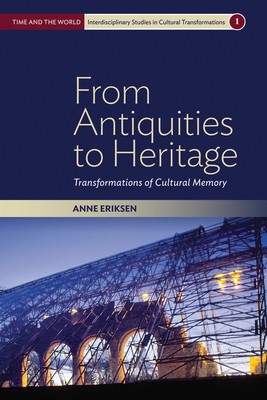
- We will send in 10–14 business days.
- Author: Anne Eriksen
- Publisher: Berghahn Books
- ISBN-10: 1785332058
- ISBN-13: 9781785332050
- Format: 15.2 x 22.9 x 1 cm, softcover
- Language: English
- SAVE -10% with code: EXTRA
Reviews
Description
Eighteenth-century gentleman scholars collected antiquities. Nineteenth-century nation states built museums to preserve their historical monuments. In the present world, heritage is a global concern as well as an issue of identity politics. What does it mean when runic stones or medieval churches are transformed from antiquities to monuments to heritage sites? This book argues that the transformations concern more than words alone: They reflect fundamental changes in the way we experience the past, and the way historical objects are assigned meaning and value in the present. This book presents a series of cases from Norwegian culture to explore how historical objects and sites have changed in meaning over time. It contributes to the contemporary debates over collective memory and cultural heritage as well to our knowledge about early modern antiquarianism.
EXTRA 10 % discount with code: EXTRA
The promotion ends in 9d.23:01:27
The discount code is valid when purchasing from 10 €. Discounts do not stack.
- Author: Anne Eriksen
- Publisher: Berghahn Books
- ISBN-10: 1785332058
- ISBN-13: 9781785332050
- Format: 15.2 x 22.9 x 1 cm, softcover
- Language: English English
Eighteenth-century gentleman scholars collected antiquities. Nineteenth-century nation states built museums to preserve their historical monuments. In the present world, heritage is a global concern as well as an issue of identity politics. What does it mean when runic stones or medieval churches are transformed from antiquities to monuments to heritage sites? This book argues that the transformations concern more than words alone: They reflect fundamental changes in the way we experience the past, and the way historical objects are assigned meaning and value in the present. This book presents a series of cases from Norwegian culture to explore how historical objects and sites have changed in meaning over time. It contributes to the contemporary debates over collective memory and cultural heritage as well to our knowledge about early modern antiquarianism.


Reviews